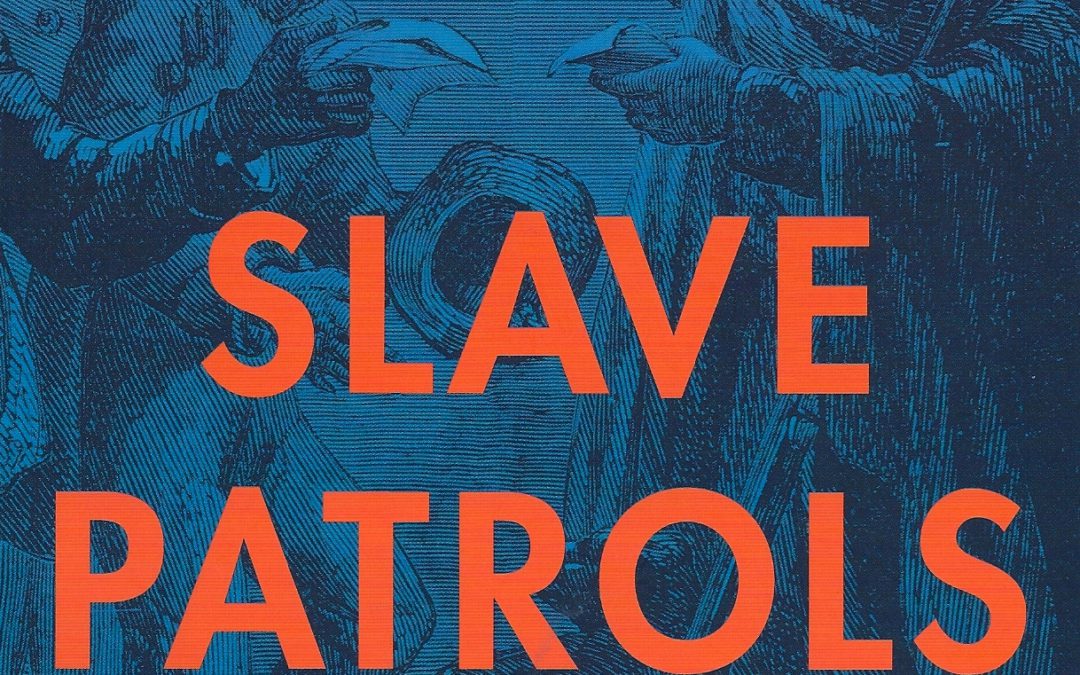Slave Patrols and Passes Aimed to Keep Slaves Under Control
Henry made his way north through the dark alleys behind the buildings along Fourteenth Street. The darkness was heavy like a tomb, giving Henry a dread sense of confinement. It was a closing in, a boxing in, an uneasy feeling that he might bump up against an impenetrable wall at any second.
He picked his way along the buildings until his night eyes came to him. The streets appeared desolate, but he knew this was deceiving. Richmond maintained a small army of patrollers who watched for slaves roaming at night. So Henry stayed to the shadows and the pitch-dark alleys.
* Â * Â *
 James Farley, a slave, recalled the day when a group of slaves were holding a worship service and singing, “Ride on King Jesus. No man can hinder thee.” All of a sudden, their service was disrupted by slave patrollers, one of whom demanded that they stop singing or he would “show him whether they could be hindered or not.”
James Farley, a slave, recalled the day when a group of slaves were holding a worship service and singing, “Ride on King Jesus. No man can hinder thee.” All of a sudden, their service was disrupted by slave patrollers, one of whom demanded that they stop singing or he would “show him whether they could be hindered or not.”
No wonder many slave worship services on the plantation required a lookout.
Slave patrollers are not to be confused with slave catchers. Slave patrols were more like a police force, keeping the slave population under control, and they were usually drawn from the ordinary white population. Slave catchers, on the other hand, were professionals hired to track down escaped slaves. Bounty hunters, if you will.
Throughout the South, cities and rural areas usually formed slave patrols, which had three primary duties, says Sally E. Hadden in her book, Slave Patrols: Law and Violence in Virginia and the Carolinas. The job of slave patrols was to: (1) search slave homes for any signs of rebellion, such as knives and other weapons; (2) break up slave gatherings, including religious ones; and (3) patrol a specified area, looking for slaves who were out and about without permission.
The white community used the slave patrol as the first line of defense against slave revolts, but not all masters welcomed them wholeheartedly. In many rural areas, the slave patrol had considerable power and could even search a master’s home without a warrant. Many masters did not appreciate this kind of invasion.
If slaves were encountered on the road, a patrol would ask to check their passes, which were issued by the master and gave slaves permission to leave the plantation or home for a specified period.
According to Hadden, “A specific pass stated the slave’s name, where she had permission to go, on what date, how long the pass was good for (‘to North Hampton Plantation until Sunday night’), and bore the owner’s signature. Owners had different policies about giving passes. Some viewed passes as a reward for work well done during the week, and thus they could be withheld if the owner desired. Other owners thought that regularly giving passes kept slaves content and made them less likely to run away.”Â
Some owners, especially in urban areas, would give their slaves general passes, allowing them to travel anywhere within the city limits for an extended time–perhaps as long as a month. Sometimes a general pass might even give a slave the freedom to travel a greater distance, all with immunity from patrols, Hadden says.
Many white citizens did not approve of general passes, as you might guess.
Some patrollers were paid, while other cities viewed patrolling as a requirement of white males–kind of like jury duty. Only in this case, the patrol wasn’t doling out justice, like a jury. It was in the business of doling out injustice.
By Doug Peterson
